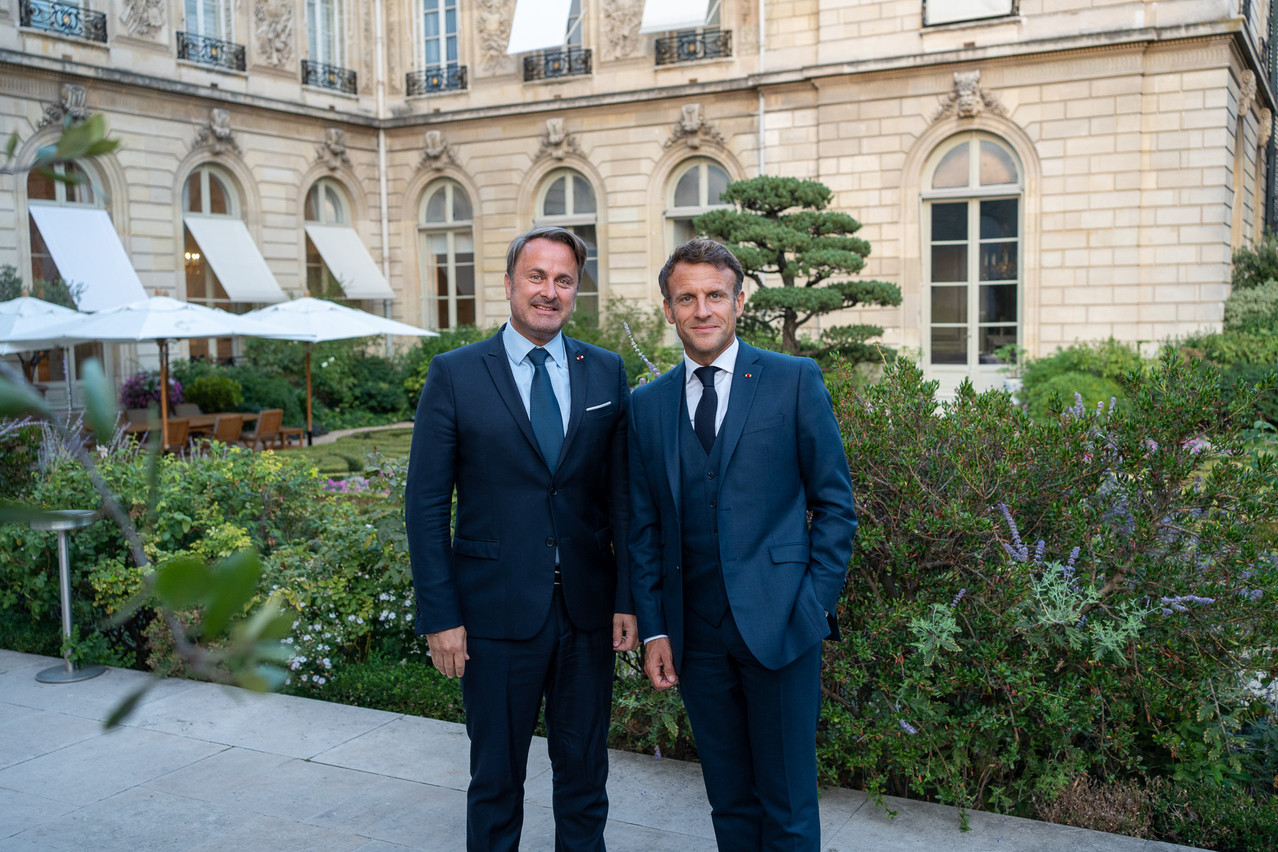During his stay in the French capital for a two-day working visit, Bettel was able to exchange views with Macron and Borne on numerous European and cross-border issues. “Some topics were discussed with both the president and the prime minister. Other subjects, such as teleworking, were discussed mainly with Ms Borne,” said Xavier Bettel.
Read also
From 29 to 34 days: the ball is in France's court
On Tuesday 30 August, Bettel explained to his counterpart that he was "happy to move from 29 to 34 days of telework". Currently, a French resident employed in Luxembourg can potentially telework 29 days without becoming taxable in France. As in Belgium, there is a real demand to increase this quota.
Bettel says that "the file must now be completed on the French side. Telework is more and more requested by employees and employers in a changing labour market. 34 days is already better than 29. Negotiations are still underway and I know that the subject will be on the agenda of the next intergovernmental conference at the end of the year.”
Despite a busy agenda for the French head of government, the meeting in Matignon between the French and Luxembourg prime minister was fruitful. "We took the time to meet for two hours. And the exchange even continued by SMS", confirmed Xavier Bettel, who took the opportunity to invite Borne to Luxembourg.
Head to head with Macron
The next day, during his meeting with president Macron for a working tête-à-tête, the Luxembourg prime minister said he had discussed more European subjects, in connection with the current geopolitical crisis. "We spoke about the situation in Ukraine and the international situation. We are in a situation that evolves every day and it is important to exchange regularly, to align ourselves, to discuss our positions, to find common denominators for the future of Europe", explained Bettel.
Another current concern is Europe's energy resilience at a time when Russia is cutting back on gas supplies. "We are always looking for proposals and solutions, and I think that it is at European level that we will find them. Whether it is in terms of energy purchasing, organisation or the rules we have today with the decoupling of gas and electricity. It is important to put everything on the table so that we can make good decisions afterwards. I have seen that Mrs von der Leyen has announced her intention to organise an energy ministers council within a few days. I think it is important that they analyse the situation at the level of the European Council in order to have concrete proposals to enable Europe to be more resilient in the field of energy", commented Bettel.
In the evening, a working dinner was held with Macron and Borne. This led to an amusing sequence in the programme Quotidien, which followed Borne for 24 hours. On Monday, when reviewing her agenda, an adviser mentioned this dinner at 9pm. The head of government then asked him, worried about her evening: "We don't have to stay until 11pm”, to which the adviser replied: "Yes. 9pm is already late for Luxembourgers.”
Xavier Bettel assures us that she did stay until 11pm.
No announcement before the tripartite meeting
Back in Luxembourg Bettel is preparing, among other things, the government's return after the summer break with a government council scheduled at the end of the week. Asked about the possibility of further announcements and measures in connection with , the prime minister indicated that the subject would be discussed at future tripartite meetings. "I will have discussions with the unions as soon as I have the next figures. I will not make any communication before. The discussions and negotiations will take place in the room with the social partners and not through statements and messages. If we want a constructive and calm debate, it is important to keep the discussions where they belong.”
This story was first published in French on . It has been translated and edited for Delano.
